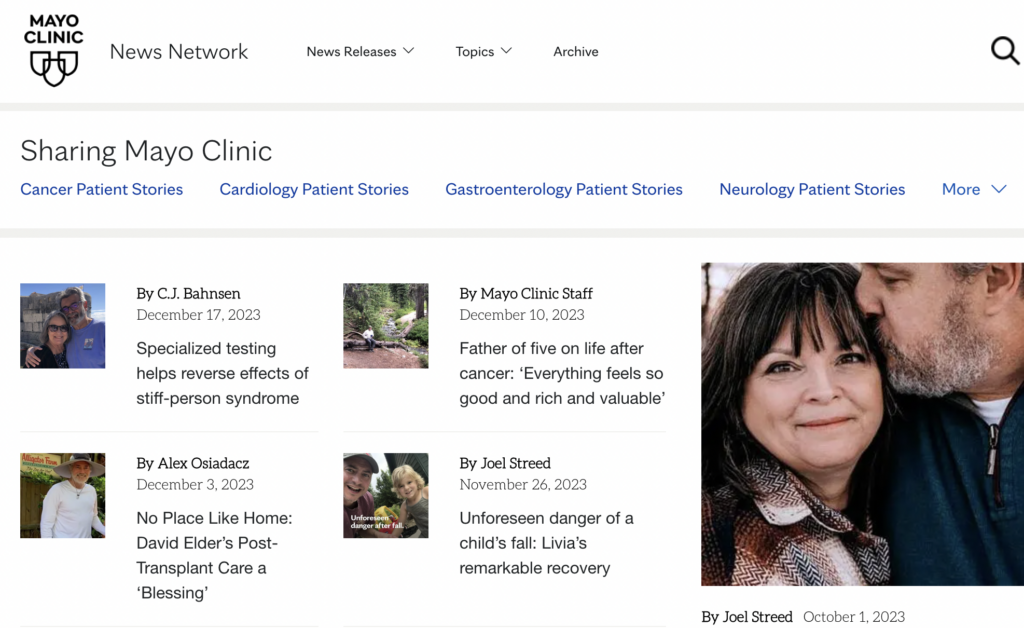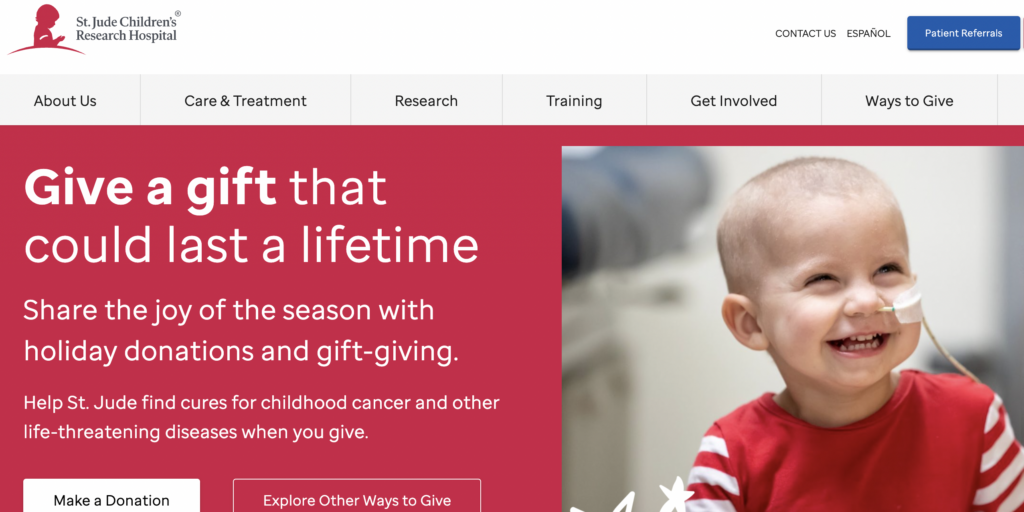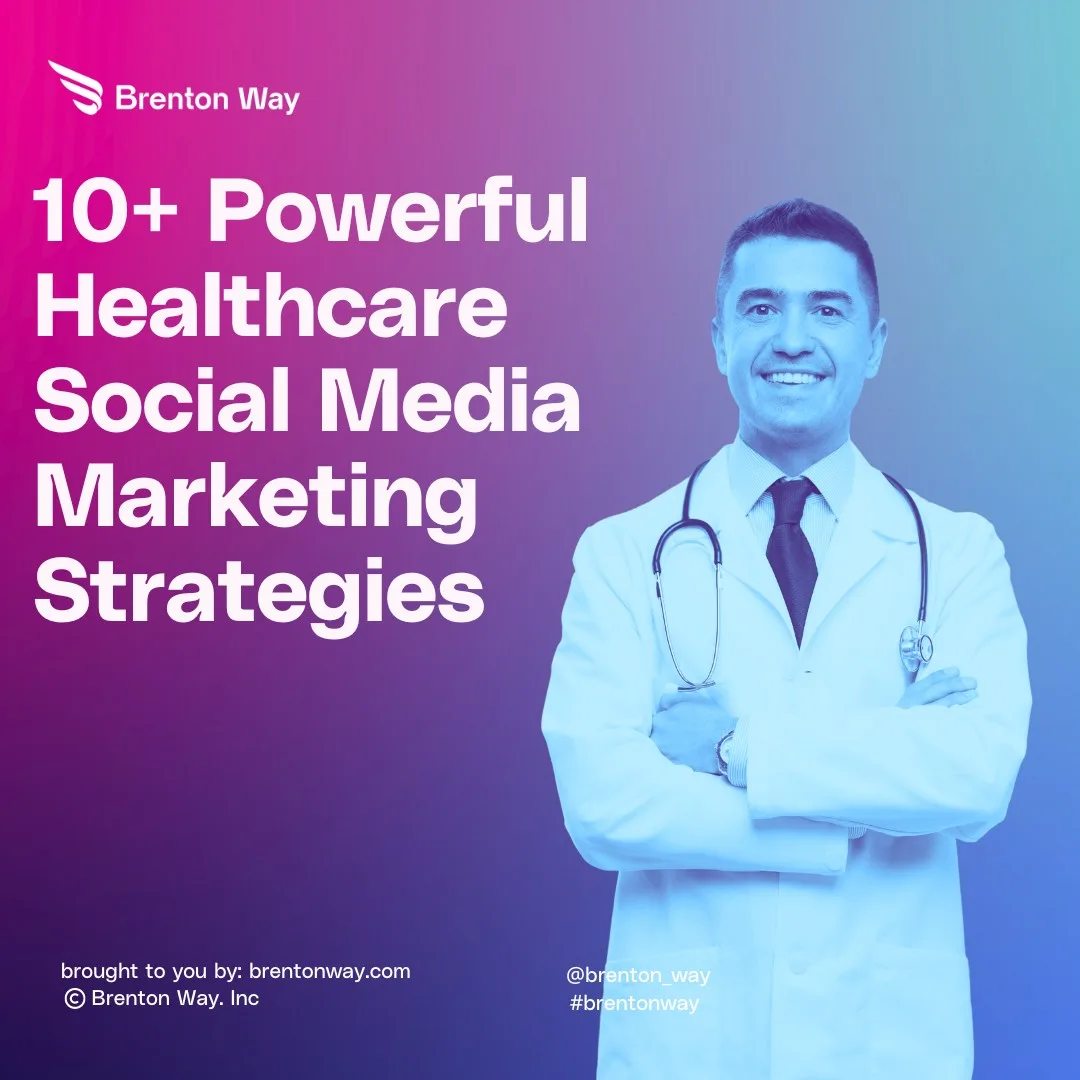
Whether you’re a medical practice, a healthcare facility, or a health-related service provider, a well-structured healthcare marketing plan can significantly impact your visibility and patient engagement. This article shares the six key steps for a successful healthcare marketing strategy. What is a Healthcare Marketing Plan? A healthcare marketing plan is a strategic roadmap tailored specifically […]

Whether you’re a medical practice, a healthcare facility, or a health-related service provider, a well-structured healthcare marketing plan can significantly impact your visibility and patient engagement.
This article shares the six key steps for a successful healthcare marketing strategy.
A healthcare marketing plan is a strategic roadmap tailored specifically for healthcare providers or organizations to promote their services, engage with patients, and establish a strong presence within the healthcare industry.
It outlines detailed strategies and tactics to reach target audiences, including patients, referring physicians, healthcare networks, or the community. Healthcare marketing companies prepare medical advertising plans encompasses a range of growth channels and marketing tactics such as digital campaigns, content creation, patient education programs, community outreach, and branding efforts.
Healthcare marketing plans integrate market research, competitor analysis, identification of key performance indicators (KPIs), and a clear delineation of goals to guide the implementation of marketing activities. The ultimate aim is to enhance brand visibility, attract new patients, retain existing ones, and ultimately improve patients’ overall health outcomes and experiences within the healthcare ecosystem.
Here are the top reasons why a healthcare marketing plan is useful:
Also See: Biggest & Newest Healthcare Marketing Trends For 2024
Successful healthcare marketing plans encompass various components tailored to meet the healthcare industry’s unique needs. Here are the key components:
Also See: Best Social Media Marketing Tactics
Here’s a step-by-step guide to help:
Example: Let’s consider a new healthcare clinic planning its marketing strategy. Analyze demographics, such as age, gender, location, and health concerns prevalent in the area: research competitors’ services, pricing, patient satisfaction levels, and marketing approaches.
Example: Once the research is complete, define specific goals. For instance, the clinic aims to increase patient appointments by 30% within six months, enhance brand recognition in the local community, and establish itself as a go-to provider for preventive care.
Example: Determine what sets the clinic apart. It specializes in holistic care, offers extended hours, or has a team of renowned specialists. Highlight these unique aspects in the marketing strategy to attract patients seeking these services.
Example: Develop patient personas. One persona might be “Sarah,” a health-conscious working professional in her 30s seeking convenience and personalized care. Another could be “John,” a senior citizen looking for affordable healthcare solutions for chronic conditions.
Also See: Best Healthcare Marketing Ideas For Doctors
Example: Based on the personas, decide on marketing channels and tactics. For “Sarah,” utilize social media platforms like Instagram or LinkedIn for targeted ads promoting convenience and personalized care. For “John,” consider community outreach programs or health workshops at local senior centers.
Example:
Here are five successful examples of healthcare marketing campaigns:
Cleveland Clinic’s “Empathy Series” features touching patient stories and testimonials shared through emotional videos. These stories highlight the human side of healthcare, emphasizing compassion, care, and the impact of the clinic’s services on patients’ lives. The campaign resonates with audiences by evoking emotions and showcasing the clinic’s patient-centered approach.
Also See: Healthcare Digital Marketing: Best Practices For Medical Companies

Mayo Clinic’s “Sharing Mayo Clinic” campaign revolves around patient stories and experiences shared through blogs and social media. It humanizes the clinic’s services by featuring real-life patient journeys, successful treatments, and personal insights from patients and medical professionals. It serves as a powerful educational tool while building trust and credibility.

St. Jude’s “Thanks and Giving” campaign runs during the holiday season, encouraging donations and support for pediatric cancer research and treatment. It utilizes emotional storytelling and celebrity endorsements to raise awareness for the hospital’s mission, effectively leveraging the season of giving to drive engagement and donations.

Mount Sinai’s campaign focuses on real patient stories, showcasing diverse medical cases and successful treatments. Through testimonials, videos, and print materials, the campaign emphasizes the hospital’s expertise, personalized care, and innovative treatments, reinforcing the trust and credibility associated with the institution.
Also See: B2B Healthcare Marketing Guide

The “Go Red for Women” campaign by the American Heart Association aims to raise awareness about heart disease among women. Using social media, events, and educational materials, it educates women about heart health, prevention, and early detection of cardiovascular diseases. The campaign empowers women to take charge of their heart health while advocating for better healthcare access and support.
Creating a healthcare marketing plan is crucial for successful marketing strategies. While specific templates might vary, here are three free healthcare marketing plan templates available online:
HubSpot offers a comprehensive marketing plan template tailored for healthcare organizations. It covers executive summary, market analysis, target audience, goals, strategies, tactics, budgeting, and measurement. It’s free on the HubSpot website and can be a structured guide for healthcare marketing plans.
Smartsheet provides a customizable marketing plan template specifically designed for healthcare providers. This template includes sections for competitive analysis, SWOT analysis, target audience personas, messaging, channels, budget allocation, and KPIs. It’s accessible for free on the Smartsheet website and can be adapted to suit different healthcare marketing needs.
Canva, known for its design tools, offers customizable marketing plan templates, including some tailored for the healthcare industry. These templates feature sections for market analysis, objectives, strategies, tactics, timeline, and budget. Canvas templates are user-friendly and free to use, providing a visually appealing way to structure healthcare marketing plans.
Also See: Medical Content Marketing Agencies List
Healthcare marketing strategies wield a profound impact on the dynamics and success of healthcare systems, influencing various facets critical to their effectiveness, growth, and sustainability:
Effective marketing strategies are pivotal in attracting new patients to healthcare systems. By highlighting unique services, specialties, or patient-centric approaches, marketing campaigns create awareness and draw individuals to seek healthcare services. Moreover, strategic patient engagement initiatives and personalized communication contribute to retaining existing patients, fostering loyalty, and encouraging repeat visits.
Robust marketing efforts enhance brand visibility and differentiation within the healthcare landscape. They establish a strong brand identity, distinguish the healthcare system from competitors, and build a recognizable presence within the community. A well-crafted brand message communicates the organization’s values, expertise, and commitment to patient care, resonating with patients and healthcare professionals.
Marketing strategies for patient education, communication, and empowerment enhance patient engagement. These initiatives, such as informative content, user-friendly portals, and proactive outreach, facilitate meaningful interactions between patients and healthcare providers. They empower patients with knowledge, streamline access to care, and contribute to a positive patient experience.
Data-driven marketing strategies enable healthcare systems to allocate resources efficiently. By analyzing patient demographics, preferences, and behavioral patterns, systems can identify high-yield areas for investment. This data-driven approach guides decisions regarding service expansions, technological advancements, or targeted interventions that optimize growth and service quality.
Marketing campaigns showcasing success stories, patient testimonials, and community involvement contribute to building a positive reputation. A strong reputation fosters trust among patients, referring physicians, and the community. Trust and a positive perception influence patients’ choice of healthcare provider, impacting patient volume and loyalty.
Marketing initiatives are instrumental in promoting and encouraging the adoption of new healthcare services, programs, or initiatives. Through targeted campaigns and educational content, healthcare systems create awareness, educate stakeholders, and encourage participation in preventive care, screenings, or specialized services.
Marketing efforts often involve forming strategic partnerships and collaborations. Collaborations with other healthcare entities, community organizations, or industry stakeholders lead to shared resources, innovative solutions, and expanded service offerings, benefiting healthcare systems and the community.
Ethical healthcare marketing practices ensure adherence to industry regulations, ethical standards, and patient privacy laws. Transparent and ethical marketing ensures compliance and contributes to maintaining the integrity and credibility of healthcare systems.
Also See: Healthcare Advertising Guide For Beginners
Crafting a comprehensive healthcare marketing plan is a dynamic process that requires careful consideration, research, and strategic thinking. Healthcare professionals and organizations can develop a strong healthcare marketing plan tailored to their unique needs and goals by following these six essential steps and utilizing available free templates.
These steps, coupled with the assistance of free templates available online, empower healthcare entities to navigate the complexities of the industry, engage with their audience effectively, and, ultimately, drive positive outcomes within the healthcare ecosystem.


